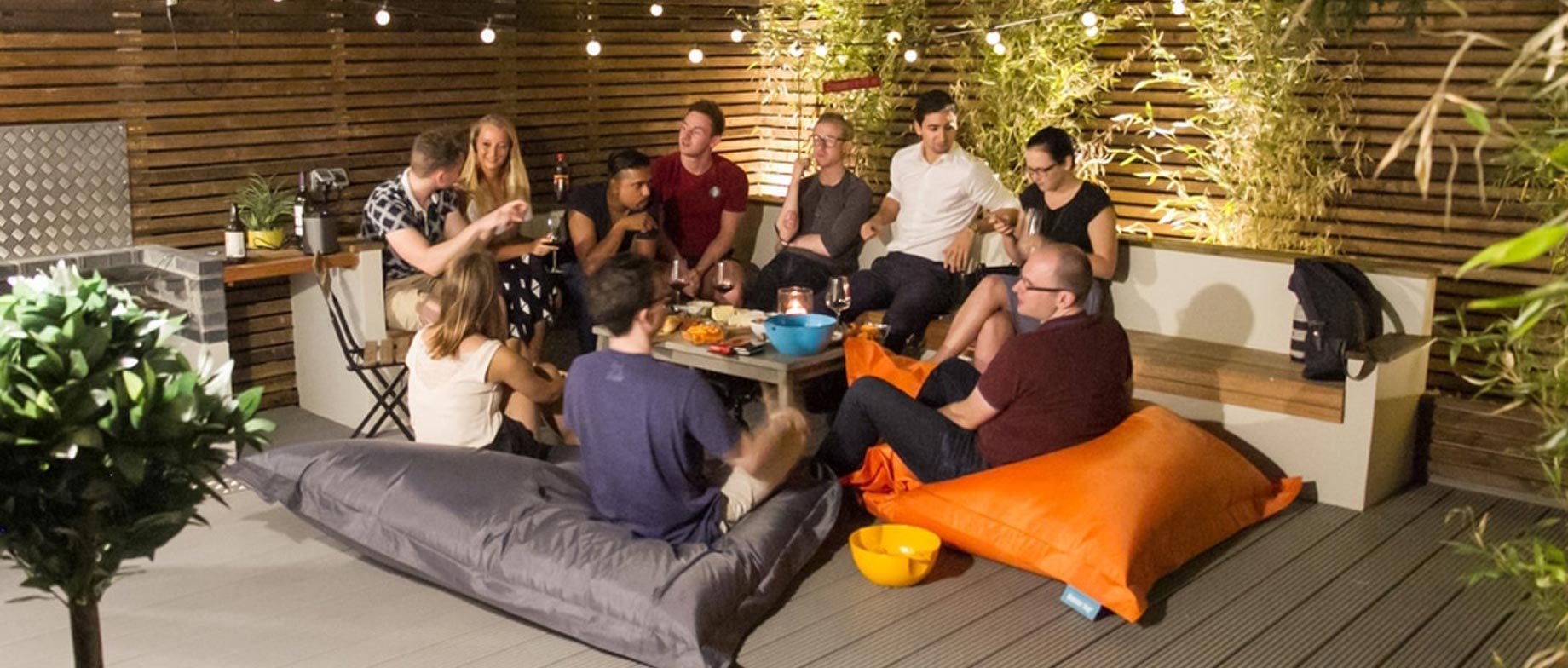Five-minute masterclass: Philip Laney
The Lyvly founder on how to run a disruptive business

Lyvly Link opens in a new window runs a network of beautifully-designed, fully furnished co-living homes across London in which all expenses are covered in the rent. By handpicking residents, who are busy professionals between the ages of 25 and 35, and giving them access to the Lyvly community, the company aims to create spaces where their members will be inspired, make new connections and enjoy life. The homes are all centrally located, and the price is less than the cost of renting a one bed or studio flat in the same area. Co-founder Philip Laney gives us his thoughts on how you can set about disrupting an industry.
Look to improve human experiences
"When we looked at the rental property industry we felt there was very little in the way of positive experiences on offer. Beyond students and senior living, the rental industry hasn't segmented the market to provide homes for specific demographics. Renters have to take care of frustrating things: paying fees, buying furniture, managing utilities, housekeeping, calling the internet company when things go wrong. But more importantly, living in rented accommodation can be lonely – there's no engaging community around you. We thought we could make a substantially better experience if we targeted young professionals in major cities and gave them two things that would make their lives much easier and much better: community and convenience. We try to take away all that emotional energy and cognitive burden around living a fulfilling life in a busy city."
Become a trend spotter
"There are trends picking up pace which mean that existing housing will not satisfy the needs of renters in the future. People are becoming more mobile and more international and they need their lives to be more flexible. Rental housing is very expensive, very inflexible and brings a lot of administrative burdens with it. It's completely out of step with what we will increasingly need."
Be unreasonable
"George Bernard Shaw had a wonderful quote: 'All progress relies on the unreasonable man'. If you're disrupting something you're saying that behaviour will change. Or that there's a pent-up demand that hasn't been met. People are going to look at you and say 'No! If it ain't broke don't fix it'. So if you can surround yourself with other unreasonable people who have disrupted things, it gives you strength when you get told 'no' time after time."
Remove pain points
"We've taken a holistic approach to how we solve problems. We put a lot of attention into how we put groups of people together. And then we take care of the potential frustrations around house sharing: the houses are always stocked with toilet paper, with dishwasher tablets, they're beautifully clean. People tend to get on well if there aren't these points of contention. So our members can focus on what matters to them: having experiences, expanding their horizons, improving their work, networking."
Get feedback and act on it
"We get very frequent feedback from our members on an automated basis. We're always using our system to ask them 'What do you think, how does this work, how do you feel', to improve our service."

Focus on your systems
"We use technology to standardise and systematise as much as we can. Everything that we do at Lyvly is driven by data and this helps us to identify trends and patterns within key areas of the business. Instead of waiting for our customers to tell us what they need, we're aware of it and working on making them happier, on a proactive basis. Getting rid of the inefficiency caused by reactivity allows us to deliver higher quality for an affordable price. 95 percent of the challenges that people have are resolvable in a systematisable fashion."
Make the most of digital…
"We're into virtual reality in our sales now. So you can actually walk around the house and see your room exactly as it will look when you turn up, without being in the actual house. What you see is what you get."
…But don’t overwhelm people
"The front end can be a bit overstated these days. For example if you've ever joined a gym they say 'Hey, download our app!' and you think 'No, I don't want to, I've got 400 apps already'. We use WhatsApp, Facebook, Instagram, things that are already in people’s lives and that they're familiar with. When people want to order things they just send us an SMS, WhatsApp or email, the back-end systems kick in and it gets done."
Help your community to build itself
"We do organise lots of events. But we also support the community in building their own events and we've got a bursary programme which means that if there's something special you want to do that would impact a number of people, we'd love to support it with organisation and funding. People are getting into it: one group has just launched a 'Come Dine With Me' series of dinners amongst the houses."
Have a big vision
"We started in 2015 and in 2016 and 2017 it was all about working on the members' experience and the systems. We're currently at 15 houses, with 100 members. We've now partnered with institutional investors and landlords and are expanding what we offer across a wider range of properties and locations, which makes Lyvly hugely scalable. We aim to expand across London, New York, Berlin and other major cities to create communities of tens of thousands in each major city across the world."
Before making financial decisions always do research, or talk to a financial adviser. Views are those of our mentors and customers and do not constitute financial advice.